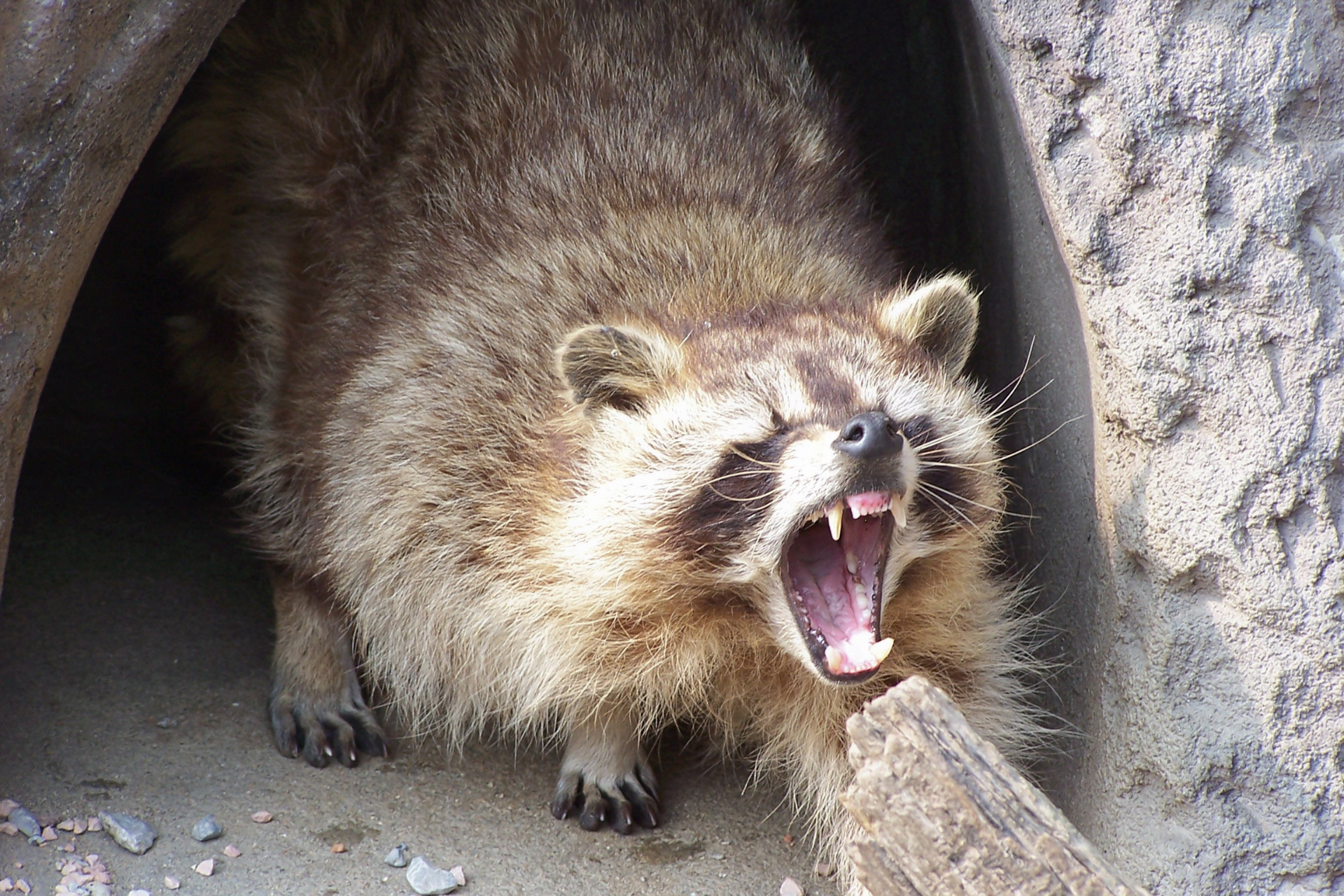Raccoons are a widespread pest in the United States, and their numbers have been dramatically increasing since the early 1900s in Illinois. Populations in the state currently average up to 45 raccoons per square mile, and those numbers climb to over 100 raccoons per square mile in certain counties.
Raccoons are intelligent, highly adaptable, and omnivorous. They are also opportunists, and always on the lookout for an easy meal. While you might think they would gravitate towards rural and forested areas, the fact is, the countryside is not their preferred habitat. Raccoons favor urban and suburban locations populated by humans where food is abundant and easily scavenged, especially areas where wooded areas and water are nearby. They’ll eat practically anything and are particularly drawn to human food and waste, so it’s not surprising that raccoons have become a severe nuisance for homeowners.
It doesn’t take much to get a raccoon’s attention—a trashcan they can get into, an outdoor pet dish, a pool, or a garden—and the next thing you know, they’ve taken up residence in or around your home. Raccoons are very destructive. They get into attics, basements, garages, chimneys, crawlspaces, walls, and outbuildings. They damage roofs, floors, insulation, electrical wiring, plumbing, woodwork, and foundations. A single raccoon can cause thousands of dollars in damages to your home and property. Additionally, raccoons are susceptible to a variety of infectious agents, including bacteria, viruses, and parasites, many of which can pose a danger to the health of your family and pets. This includes leptospirosis, listeriosis, toxoplasmosis, roundworm, rabies, canine distemper, parvo, canine hepatitis, and more. Some of these conditions may even cause fatalities to humans and pets. Many of these threats can be passed on indirectly through cross-contamination by merely touching something they have touched, or through contact with saliva, feces or urine.
If you’ve seen a raccoon near your home, it is never a good sign. You might also be experiencing signs of infestation without visibly seeing one since raccoons are typically nocturnal and avoid being seen. Red flags to look for are toppled trashcans, scattered food debris, droppings near woodpiles, scratches on your home’s exterior (shingles, vents, shutters), odd noises, and unpleasant odors around the house.
Getting rid of unwanted raccoons can be a very frustrating effort. Raccoons are tenacious and repeatedly return to the same location where they’ve found food in the past. Furthermore, trapping a raccoon in Illinois requires a special permit, and there are complicated rules and regulations which must be adhered to.
Your best bet is to rely on the services of a professional. Veteran’s Pride Wildlife Control is the leading specialist when it comes to raccoon removal and control in Illinois, and St. Louis County. We have the resources and knowledge to swiftly and effectively take care of your problem, and we can put a prevention plan into place to help avoid future issues. Our friendly and experienced team of professionals are available and ready to assist you around the clock—we even offer 24-hour emergency service if needed. If you suspect you have a raccoon problem or would like to prevent one, contact Veteran’s Pride Wildlife Control today. We’re ready to help!

